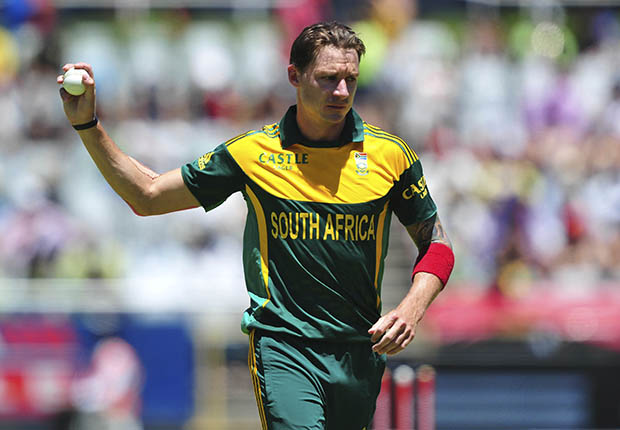Dale Steyn was unfortunate not to be named ODI Player of the Year for 2014 ahead of AB de Villiers at the International Cricket Council awards.
An outright prediction on who the ICC should have categorically heralded required conclusions drawn not only from statistical value, but the cricketers’ ability to transcend the fickle, arguably subjective approach of judges and fans alike – and the ever-evolving game in general.
With three South Africans and a single Indian in the running for the coveted accolade, probability was high – as large as 75 percent, in fact – that Quinton de Kock, AB de Villiers or Steyn would claim the trophy. While Virat Kohli characteristically starred on the sub-continent, runs away from home were an infrequent commodity.
In a format oft-dominated by batsmen, De Villiers, too, should have taken a back seat to Steyn. The captain gathered an aggregate some nine runs greater than an already impressive career average of 51.02 during the voting period, which spanned 26 August 2013 and 17 September 2014. His honour, though, would have been better placed in the ICC Cricketer of the Year category, which instead went to Australian Mitchell Johnson.
Like De Villiers navigated the captaincy and the middle order in superb fashion, De Kock carried the additional responsibility as wicketkeeper without letting it negatively affect his primary role with the bat. Racing to 1 000 ODI runs quicker than anyone, other than England pair Kevin Pietersen and Jonathan Trott and West Indian great Viv Richards, the young left-hander’s meteoric rise has since slowed, though, and a slew of failures against Australia shortly before the end of the ICC awards ballot bracket quickly saw reality toll.
Steyn, meanwhile, did not relent – and was a deserving frontrunner for the award, before the errant ICC powers-that-be deemed otherwise. Epitomised by the career-best haul of six for 39 achieved against Pakistan in Port Elizabeth in November last year and accentuated by the complementary four for 34 gathered against the Aussies in Harare in September 2014, the past 12 months engendered Steyn’s remarkable longevity. At 31 years old and more than 25 000 balls bowled in international cricket, the animated right-armer defied the dry spells, slumps in form and physical and intangible fragility associated with fast bowlers – across Test match cricket, too.
If 33 wickets in 14 matches at the remarkable average of 14.96 – a full 10 runs less than his career number – didn’t demand Steyn beat De Villiers to Friday’s accolade and accompanying plaudits, several overarching factors – sustainability, esoteric influence, belligerent defiance in the face of adversity and killer instinct – should have.
Photo: Backpagepix







